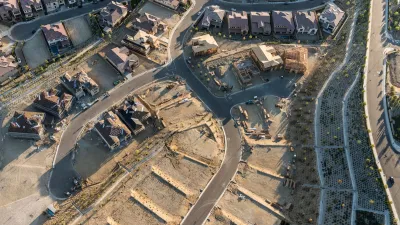Dr. Lucy Jones emphasizes that resilience in the face of climate-driven disasters like wildfires relies on building strong social connections, which empower communities to recover and adapt to an increasingly challenging future.

Southern California’s recent wildfires, including the devastating Eaton Fire, highlight the growing need for resilience in the face of climate-driven disasters. Dr. Lucy Jones, reflecting on personal experiences of loss and fear, underscores the critical role of social bonds in fostering recovery. Resilience is not just about physical rebuilding but about the strength of relationships—connections within families, schools, faith communities, and neighborhoods—that form the foundation for collective recovery and action.
Fear and grief often dominate the immediate aftermath of disasters, creating feelings of powerlessness that can hinder action. However, helping others during these times—whether by offering support, volunteering, or simply checking in on neighbors—can empower individuals and bring a sense of purpose. This shift from focusing on personal loss to community rebuilding is vital, as social capital not only aids recovery but also mitigates the emotional toll of crises.
As disasters become more frequent and severe due to climate change, society must evolve its risk management strategies, such as exploring alternatives to traditional insurance and fostering community collaboratives. These collaboratives, as seen in past wildfire recoveries, allow communities to pool resources and address challenges collectively. In the end, resilience starts with everyday connections—talking to neighbors and building relationships—which prepare us not just for fires but for the broader range of extreme events that lie ahead.
FULL STORY: Opinion: Where does resilience come from?

Planetizen Federal Action Tracker
A weekly monitor of how Trump’s orders and actions are impacting planners and planning in America.

Vehicle-related Deaths Drop 29% in Richmond, VA
The seventh year of the city's Vision Zero strategy also cut the number of people killed in alcohol-related crashes by half.

As Trump Phases Out FEMA, Is It Time to Flee the Floodplains?
With less federal funding available for disaster relief efforts, the need to relocate at-risk communities is more urgent than ever.

Berkeley Approves ‘Middle Housing’ Ordinance
The city that invented single-family zoning is finally reckoning with its history of exclusion.

SEPTA Budget Slashes Service by 45 Percent
The Philadelphia-area transit agency is legally tasked with maintaining a balanced budget. Officials hope the state will come to the rescue with additional funding.

Connecticut Governor Vetoes Housing Bill
Gov. Lamont reversed his view on a controversial affordable housing bill that would have required municipalities to zone for set amounts of affordable housing to receive state funding.
Urban Design for Planners 1: Software Tools
This six-course series explores essential urban design concepts using open source software and equips planners with the tools they need to participate fully in the urban design process.
Planning for Universal Design
Learn the tools for implementing Universal Design in planning regulations.
Heyer Gruel & Associates PA
JM Goldson LLC
Custer County Colorado
City of Camden Redevelopment Agency
City of Astoria
Transportation Research & Education Center (TREC) at Portland State University
Camden Redevelopment Agency
City of Claremont
Municipality of Princeton (NJ)





























